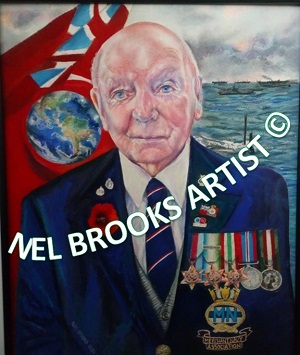

Anthony was part of the crew of several Merchant Navy ships that kept Britain supplied with food, fuel and manufactured goods from all parts of the world during the war. He served on cargo ships and tankers during the Battle of the Atlantic. He also served on ships involved with the evacuation of troops from France and Norway and the evacuation of civilians from Gibraltar. He also served on hospital ships. Like many members of the Merchant Navy he served with the Royal Navy during the war under the T124 Articles (this meant that he served under the rules and discipline of the Royal Navy but continued to be receive Merchant Navy pay and other conditions). Anthony served from 1939-1942 under T124 Articles and then reverted back to Merchant Navy regulations for the rest of the war.
Although merchant ships were armed, thousands of sailors became the victims of German U-boats and aircraft attacks that targeted these vital supply lines. A disadvantage of being a merchant seaman was that if the ship sank, their pay stopped immediately. As the conveys were not allowed to stop to rescue their men, the convey rescue ships and Royal Navy escort ships did everything they could to save them from drowning.
Having survived the war, Anthony fought hard, with other members of the Merchant Navy, to secure funding for a Merchant Navy memorial in his local town, to honour all his fellow Merchant men and members of the Fishing Fleet who lost their lives.
Anthony served on the following ships during the war -: the Ulster Monarch, Remava, Jamaica Producer, Eros, British Character, Fort Yale, British Progress, Empire Emerald, British Freedom, Isle of Guernsey, hospital ship Letitia (bringing back wounded Candian troops from France to Halifax, Nova Scotia and then after VJ day bring US troops and Pows back from Guam to Seattle, USA) and on the Capetown Castle (bringing British troops back from Singapore via Bombay (Mumbai) to Southampton after VJ day).
Visitor Number: